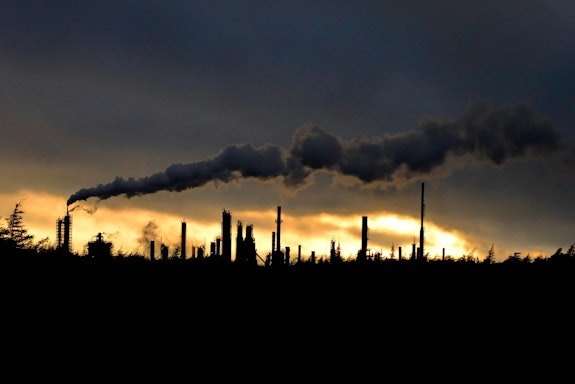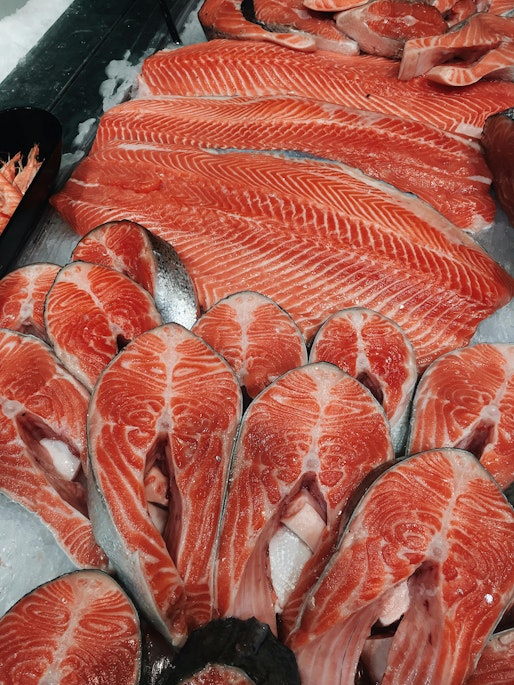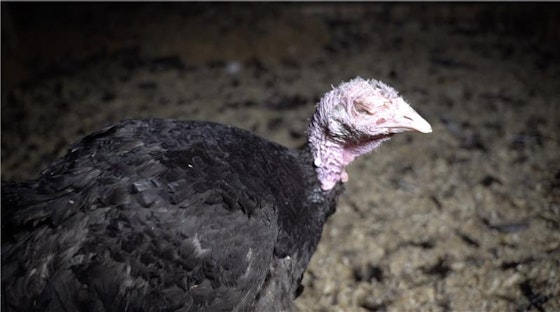
Campaign
Break the Link to cut bills, boost the economy and fix energy
December 11, 2025

April 14, 2025
A shipment of Scottish salmon sent from the UK to France has tested positive for anabolic steroids - posing alarming risks to human health, according to a notification from the European Commission’s food and feed safety watchdog.
These synthetic hormones, banned in UK farming, were detected in a consignment flagged by the EU’s Rapid Alert System for Food and Feed (RASFF). The risk was classified as “serious.” While the source of the contamination remains unknown - neither the farm nor company involved has been named - the implications are grave: the fish was bound for human consumption.
Health experts and campaigners are sounding the alarm. Anabolic steroids, when consumed through food, can enter the human body undetected and cause a raft of medical problems. According to a recent review in Toxicology Reports, steroid residues in fish have been linked to early puberty in children, hormonal imbalances, disrupted growth, altered sexual development, and cancers of the breast, ovaries, and prostate. The authors called the misuse of steroid hormones in fish farming “an emerging global health crisis.”
Animal Equality UK's Executive Director, Abigail Penny, didn’t hold back: “This isn’t just a farming scandal. It’s a public health threat. People eating this fish could unknowingly be ingesting hormones that damage their endocrine systems, trigger premature puberty, or worse. It’s terrifying.”
Agriculture specialist Mark Borthwick, who researches on-farm behaviour change in salmon farming, warned: “There is no legal basis for these substances to appear in any UK salmon. This isn’t just regulatory failure - it’s either extreme contamination or deliberate malpractice. Either way, it could lead to serious health risks for consumers and warrants immediate investigation.”
Steroids are often used in some countries to artificially accelerate growth or reproduction in farmed fish - but this practice is strictly outlawed in the UK. Despite this, regulatory bodies have failed to stop these substances entering the food chain. Borthwick called out the system’s collapse: “Every safeguard failed - from UK law to veterinary oversight. If consumers can’t trust the food on their plate, what’s the point of regulation?”
France, the UK’s largest buyer of Scottish salmon, brings in 62% of all exports - worth £462 million annually. The contaminated fish was destined for French supermarkets, restaurants, and homes.
This is not an isolated incident either. A Freedom of Information request also revealed four recent salmon consignments had been rejected by French authorities, primarily for mislabelling. The discovery of steroids could be the tipping point. As Don Staniford of Scottish Salmon Watch put it: “This could be the final nail in the coffin for our salmon exports to France. Who wants drug-laced fish on their dinner plate?”
Some producers, like Bakkafrost, claim to use hormone-free feed - but this latest revelation casts doubt over the industry’s ability to ensure consumer safety.
The bottom line? Hormones in food are not just an ethical or environmental issue. They’re a direct threat to human health. And if this scandal isn’t addressed head-on, contaminated salmon could keep slipping through the net... and onto people’s plates.
Salmon Scotland, the industry body, has been approached for comment. So far - nothing.
Campaign
December 11, 2025
Campaign
December 11, 2025
Sustainability
December 08, 2025
Food
December 05, 2025


